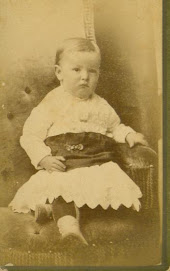Thursday, August 23, 2012
The Things
Monday, March 12, 2012
Who, What, Where, and the When of Chronology
Who, what, where and when is necessary to a good story, says Journalism 101. It can be incorporated into the story so it isn't apparent it is there. For example:
Mom and Dad were living in the second story rooms in her parent's home. There were two bedrooms with no plumbing or running water. Dad was working days as a carpenter apprentice and going to school at nights. He was hoping I would be born on a weekend. Money was tight, as tight as his daily schedule. Missing school would be difficult. Missing income would be monumental. Seems, I knew nothing of their plans. I did not wait for an invitation to enter the world on a Tuesday........
Wednesday, March 7, 2012
Sometimes Do What's Not Recommended
The significance of a date can bring back the story of an event, but if you don’t remember what was happening in the world at the time, look it up. That too, might spark ideas an provide needed details that will bring your story to a time and place that seems real to the reader.

